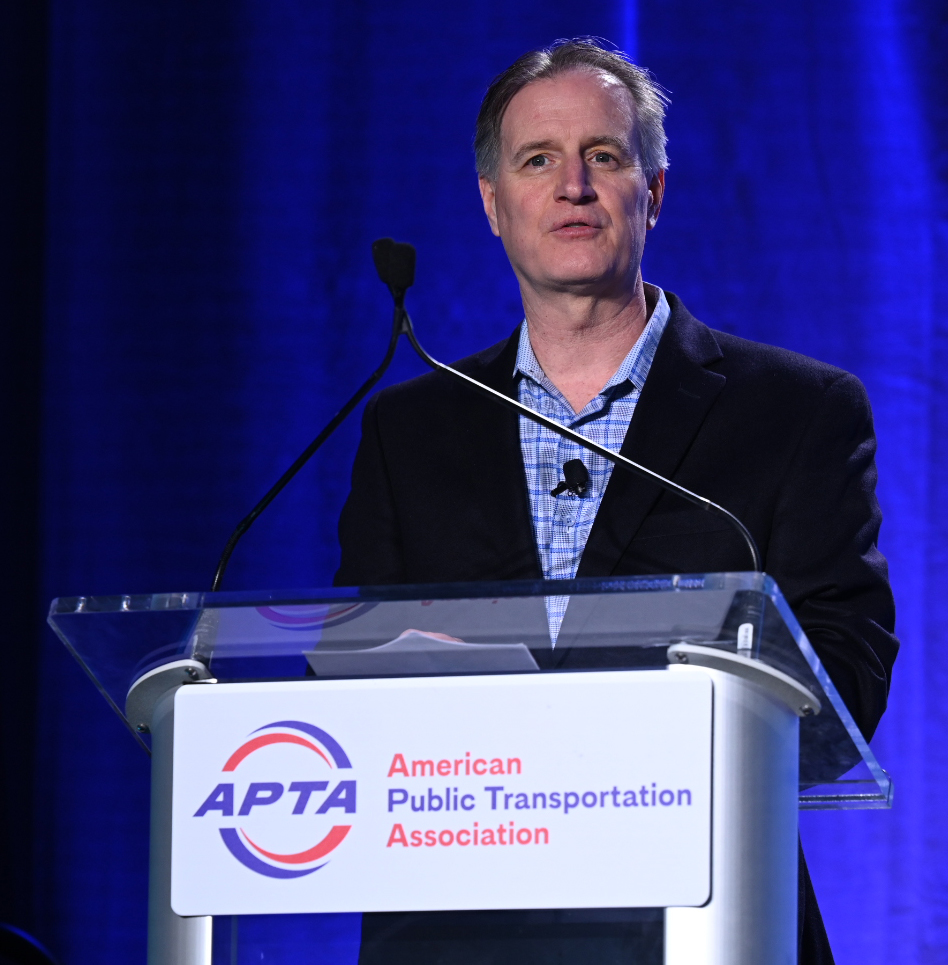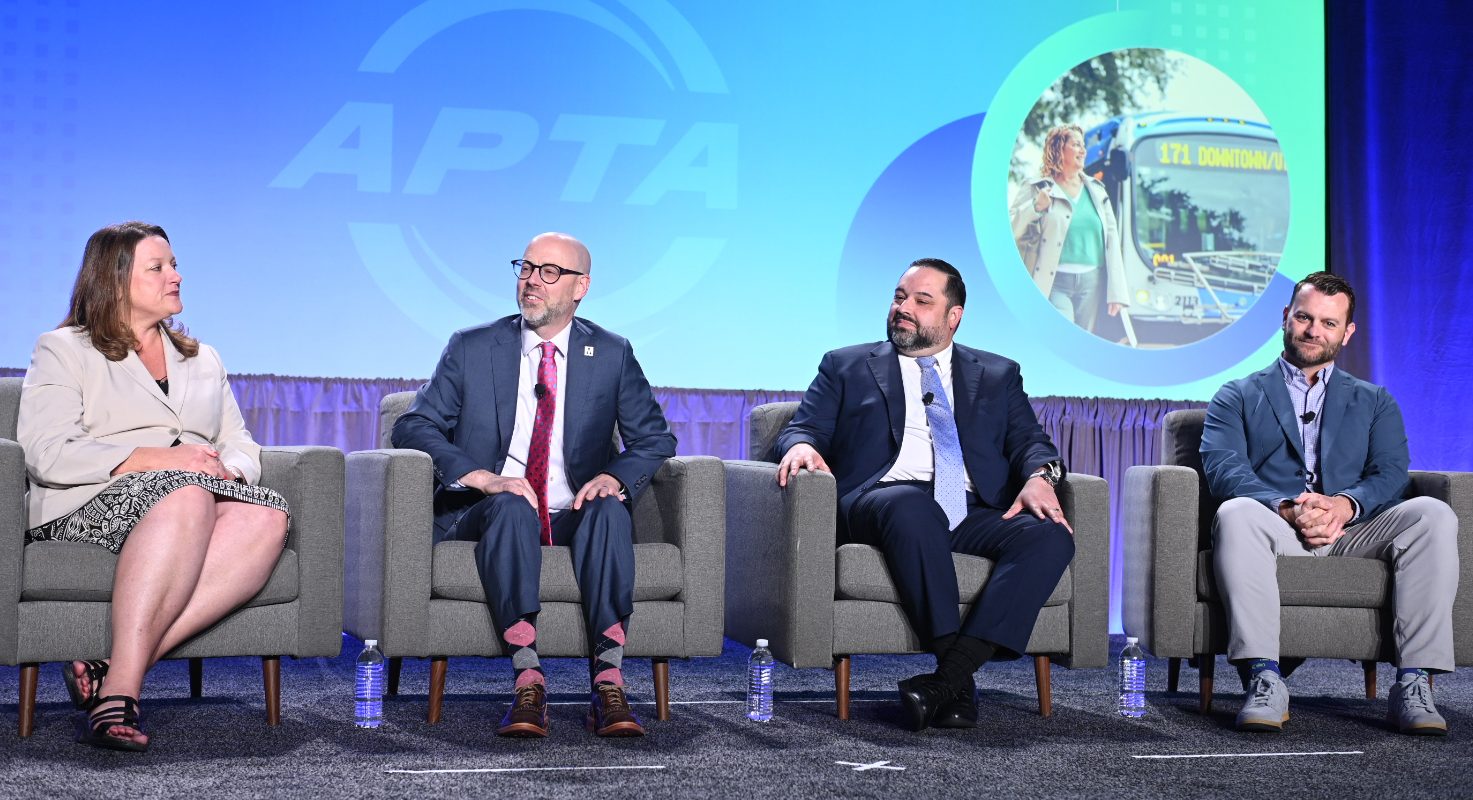Texas Size Transit Problems, and Solutions
4/10/2025

At the Texas Roadshow: Highlights from the Lone-Star State session at the APTA Mobility Conference, attendees got to hear from transit leaders in Texas about how to overcome big problems in a big state. In his opening remarks, FTA Executive Director Matt Welbes reminded the panel and crowd: “state of good repair and efficient operations never go out of style.”
Facing conservatives in office is nothing new for the top transit agencies in Texas. For Eduardo Miranda Jr., executive vice president, government & public affairs, Metropolitan Transit Authority of Harris County (Houston Metro), it’s all about knowing your audience. “What we try to do is talk about the economic development or the financial reasoning for why it’s important to expand transit,” he says, for when wooing state leaders. For locals that are more liberal, it is more important to talk about whom the agency serves.
It is also important to point out that the first Trump Administration proved that transportation projects in Texas will not stop. Then, two BRT small start grants were funded, and there was a full funding grant agreement for the Dallas Light Rail extension.
The other big challenge in Texas is that it is a car-centric state. Moderator Dottie Watkins, CEO of host agency Capital Metropolitan Transportation Authority (CapMetro) in Austin even quipped, “one might even go so far as to say a pickup truck centric.” In Lubbock, Citibus GM Chris Mandrell admits—tongue in cheek—that some grocery stores have hitching posts, with public transit competing with horses, too, but he has his own built-in advantage, Texas Tech. “What we try to utilize is our university,” he said. It also bolsters ridership among a younger generation and helps with large events on the campus.

In Fort Worth, public transit is the natural lay of the land. Rich Andreski, president and CEO of Trinity Metro, says that public demand for transportation there is high, and using customer demand helps. “Using the train to go to the airport, using the train to go to Dallas to see a game or a concert” makes it easier to advocate for transit dollars.
These transit leaders see special events as the way forward to increasing demand and usage of transit systems. Miranda is prepping for the 2026 World Cup in Houston, saying its “like eight Super Bowls in one month.” The agency is using other large events like the rodeo to prep for the influx of fans. In Austin, Dottie Watkins proclaims “event transportation is the gateway drug of transit!”
CapMetro has been able to get 20 percent of the fans attending Austin FC matches to use light rail to get to the stadium, trying to build ridership among residents that will translate into a city more accustomed to using mass transit in a car-centric state.